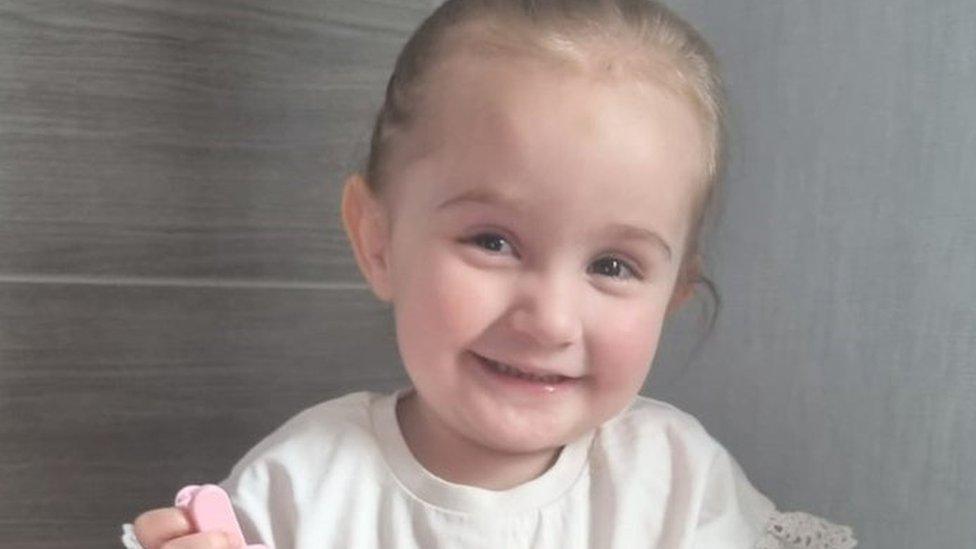'Breaking point' as SEN kids wait for school place
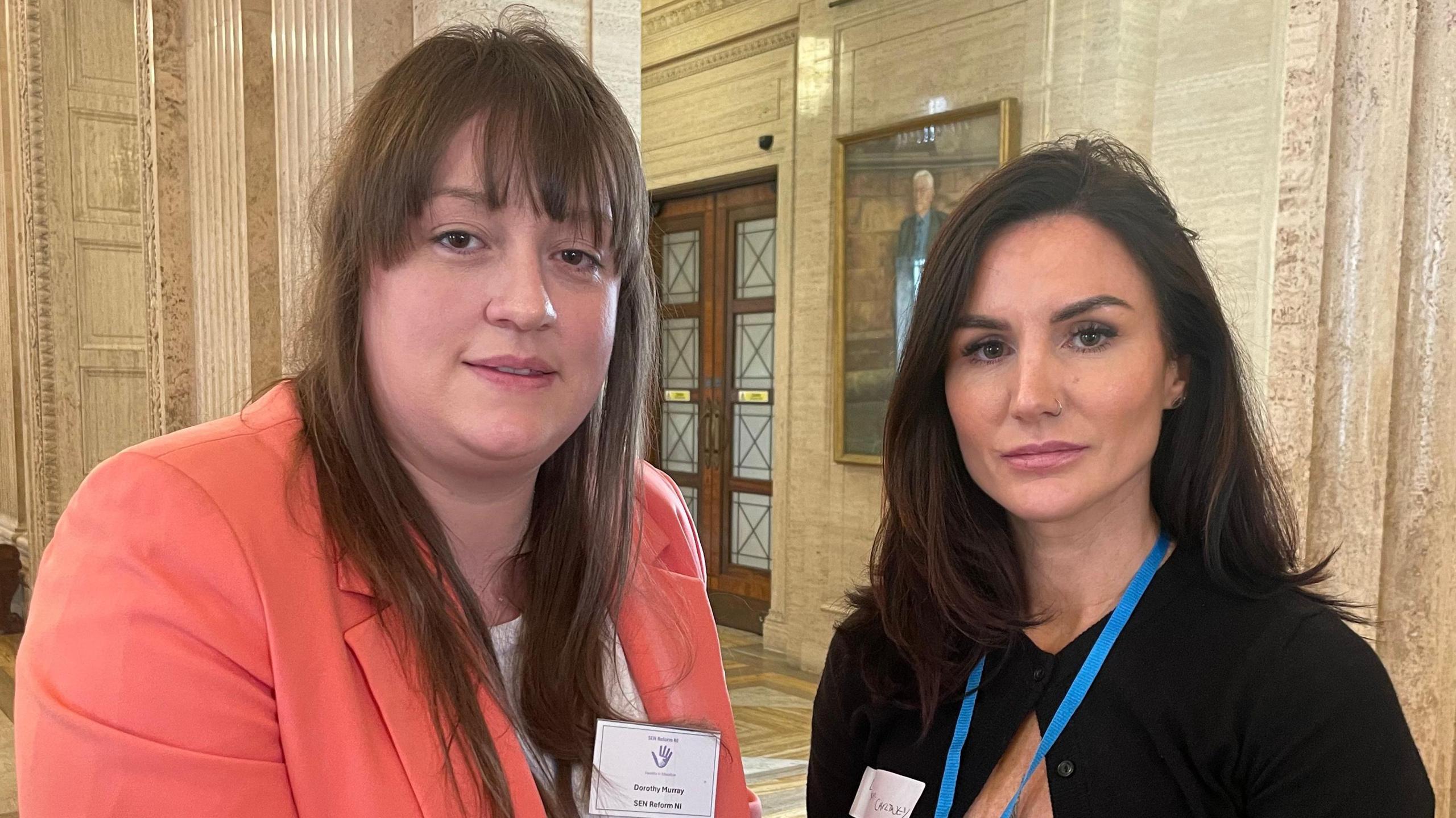
Dorothy Murray (left) said her daughter being placed in a mainstream school has led to her giving up work
- Published
Parents of children with special educational needs (SEN) say they’re at “breaking point” as hundreds in Northern Ireland still wait for a school place in September.
An event highlighting the challenges of those trying to navigate the school system was held at Stormont on Monday.
It was organised by the parent-led advocacy group SEN Reform NI.
According to the Education Minister Paul Givan, there are currently 400 children in Northern Ireland waiting for a decision on their pre-school and primary place.
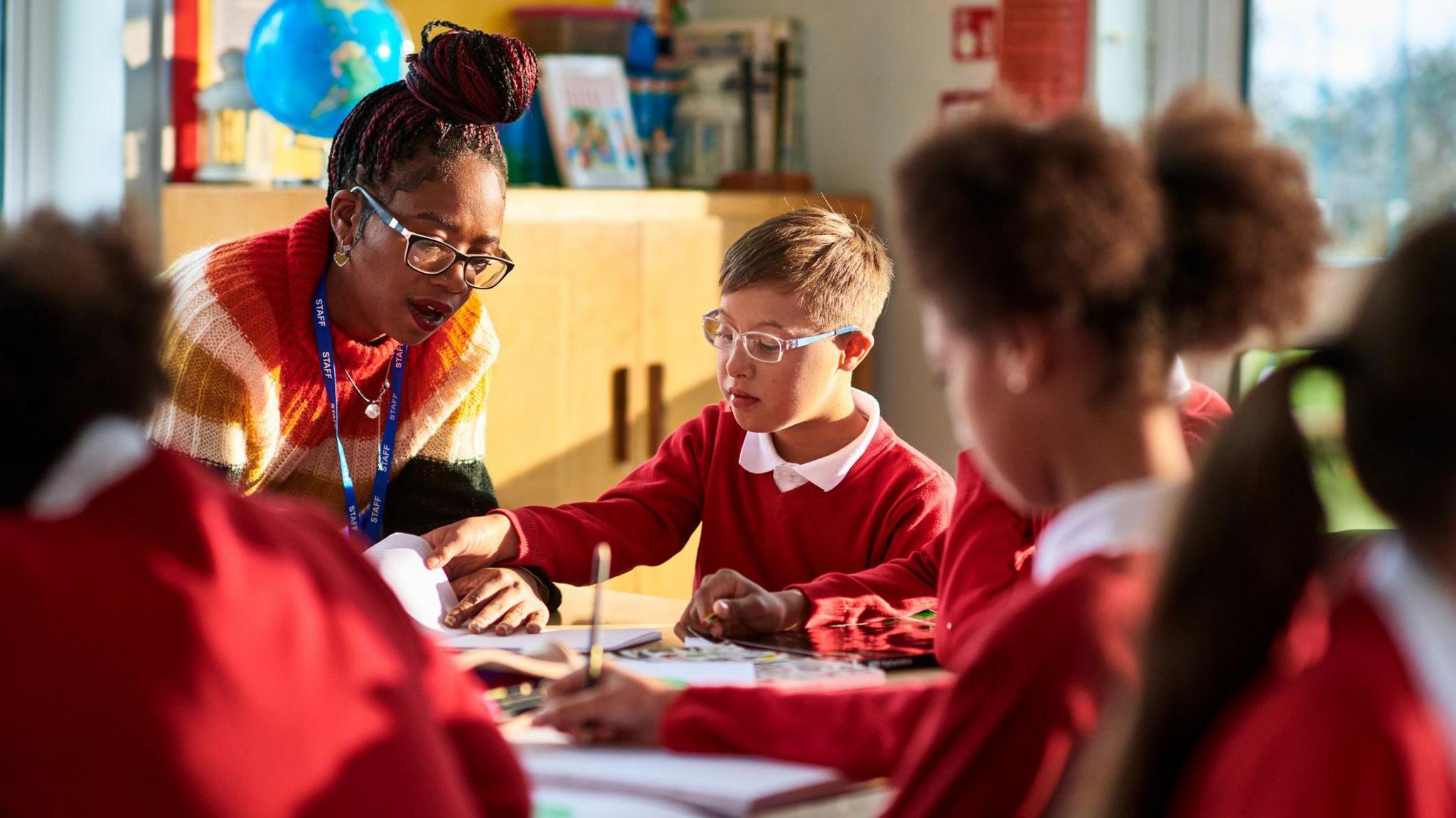
There are currently 400 children in Northern Ireland waiting for a decision on their pre-school and primary place
Dorothy Murray, one of the co-founders of SEN Reform, told BBC News NI her four-year-old daughter did not get a specialised nursery place.
Sienna, who is non-verbal with autism, was placed in a mainstream school with a one-to-one teaching assistant.
This year she is still waiting on a specialised place for Primary One.
“I had to give up a 13-year career because of the situation. I had to change nappies and my work just couldn’t accommodate me for that.
“I am at breaking point, it’s not easy and nobody knows until you go through this process with your child.
“The stress, the anxiety – it affects my whole family.
“I have two other children with different needs – I have to be so much to my daughter, I have to be a speech therapist, an occupational therapist, a mum."
Ms Murray said children like Sienna are being denied a basic human right.
'Profound emotional impact'
During the event, SEN Reform NI discussed the 436 responses it received to a survey of parents and guardian of children with special educational needs.
Its key findings included that more than half of respondents experienced delays beyond the statutory 26-week timeframe for receiving a statement for their child.
Nearly 27,000 have a statement of special educational needs, which is a legal document setting out a child's needs and the support they should have in school.
It also found that 66% of those who responded rated the effectiveness of the Education Authority's communication as "very poor" or "poor" and that there was a "profound emotional impact on families".
Parents reported feeling overwhelmed, unsupported and let down by the Education Authority, with many describing the process as exhausting and stressful.
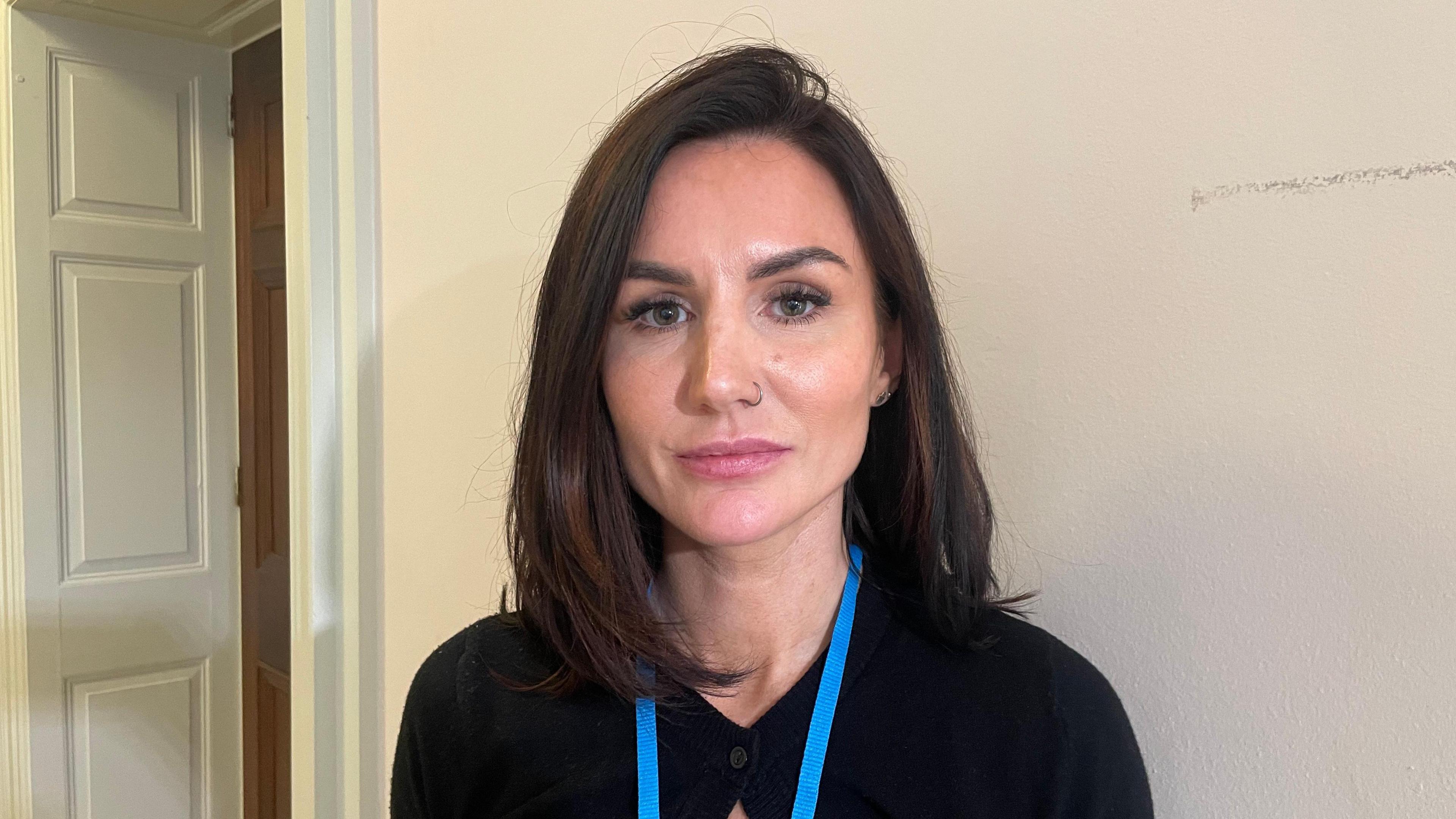
Lisa McCartney said her son Jamie has been turned down from two schools
Lisa McCartney spoke about the "hurtful" process of finding out her four-year-old son is without a school place for the second year running.
She said she applied for two school for Jamie, who has autism, but was turned down for both.
"I don't know why," she said.
“I’m campaigning, I’m down here fighting, I’m shouting, I’m rallying anybody that will listen – I’m his voice so I have to shout for him because nobody else will.”
Ms McCartney said she thinks their calls to reform the special educational needs school system is falling on deaf ears.
“It’s good that politicians are showing up to these events and say 'yes we want to help', but it’s all language and no action.”
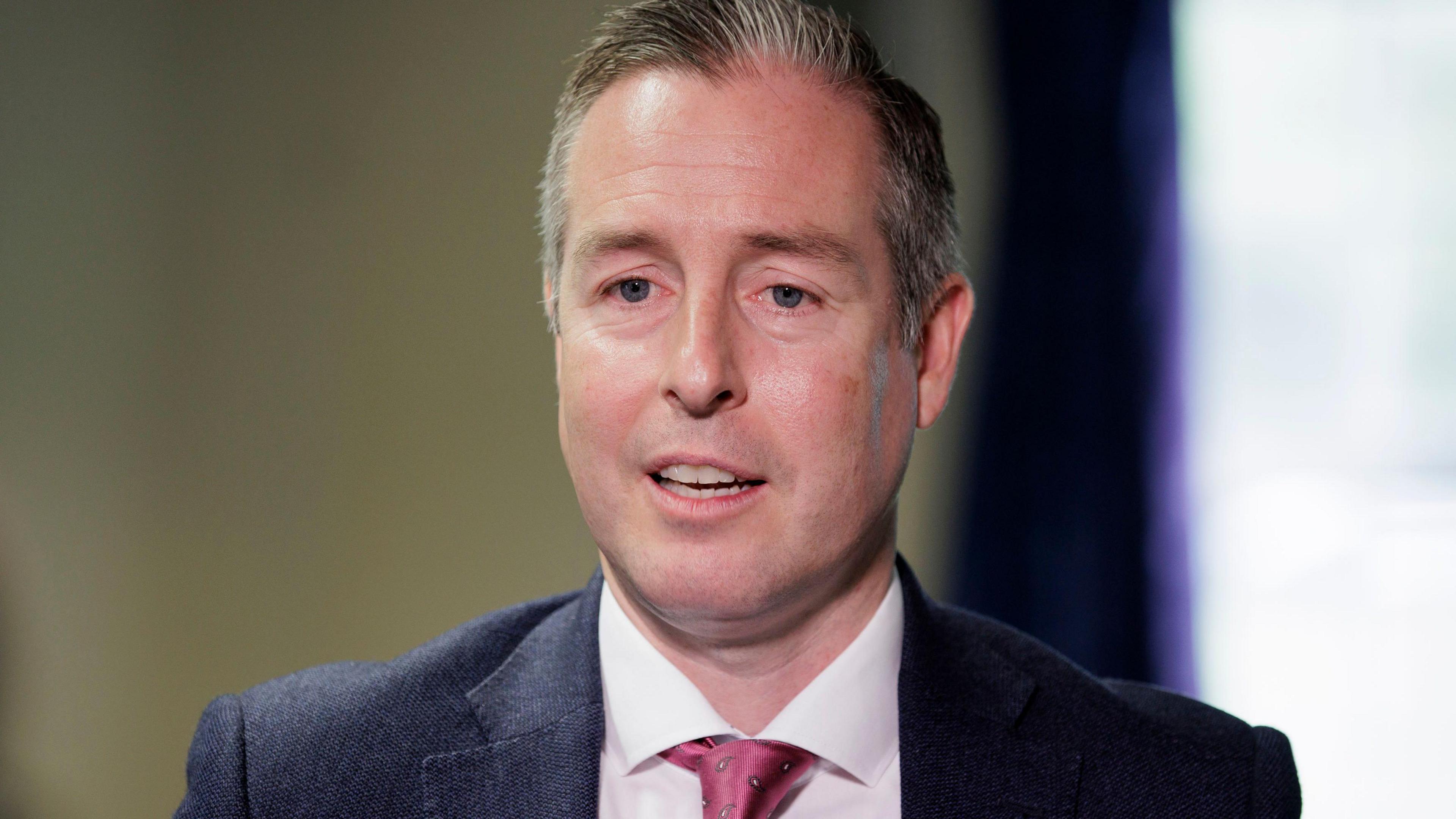
Education Minister Paul Givan said the sytem is "on a trajectory to ensure that every child will have a place in September"
Education Minister Paul Givan addressed the event and said he is optimistic the need to find places for children by September will be met.
He said his department has been engaging with schools across Northern Ireland and that out of 700, 300 have said they are capable and willing to make places available for this year and next.
“When I came into post 1,000 places needed to be created for September to reach the projected need,” he told BBC News NI.
“That figure has now reduced to around 400 and we’re on a trajectory to ensure that every child will have a place in September.
“We need to prevent this happening next year so we’ve looked at what is the need for 2025, how do we meet that need, what enhancements are needed in schools, what specialist provisions can be put in place so we get children the right provisions.”
He added that he understood the frustration of parents "not knowing, not finding out whenever other children have secured their place".
'We are in a crisis'
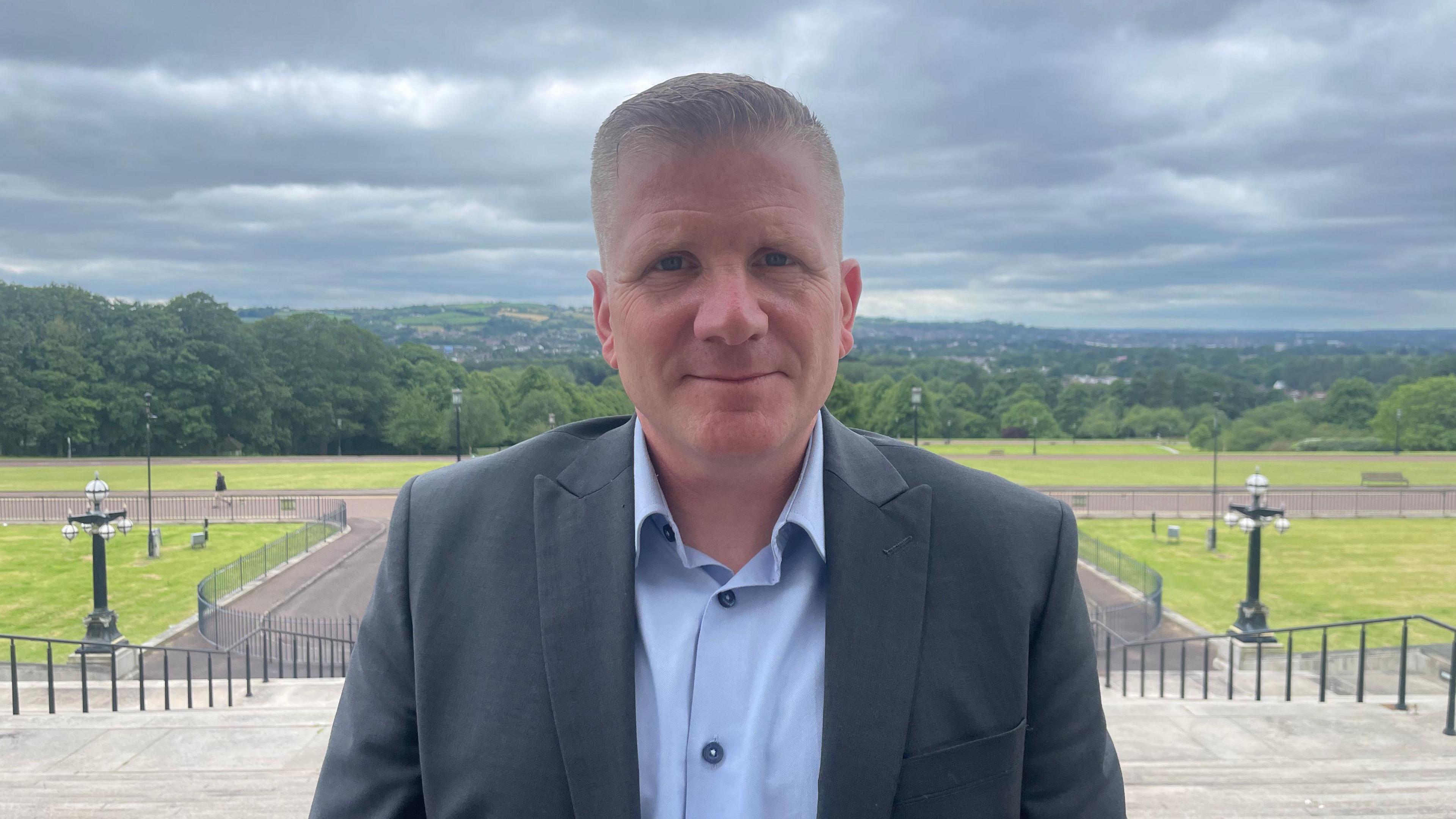
Chris Quinn said that parents are "desperate"
Chris Quinn, Northern Ireland’s Commissioner for Children and Young People, said he believes children with special educational needs are being failed.
“The services that children from a special educational needs and disability background are not being met adequately, this is absolutely a child’s rights issue and we are in crisis,” he said.
“We need urgent action, children can wait no longer.”
Mr Quinn said early intervention is key.
“We need to provide support, we need to invest in early intervention – children, babies, infants, mothers, fathers need support from the earliest stage in life.
“Parents are desperate. My question is who is supporting them?"
He added that he would "like to see a crisis response - if that requires emergency legislation or a policy, we need to ensure that this crisis is dealt with as such".
Related topics
- Published11 April 2024

- Published21 March 2024
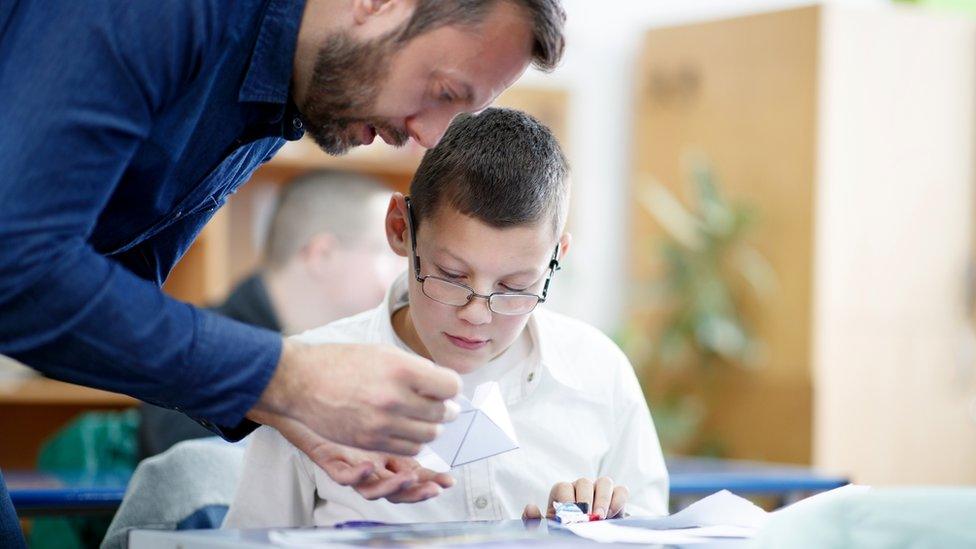
- Published21 June 2023
